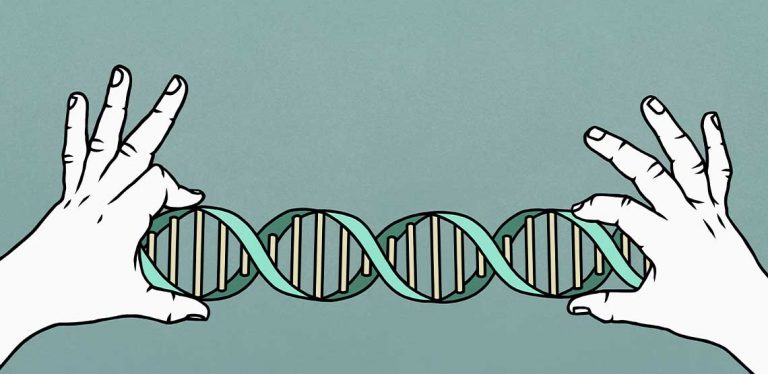Is Schizophrenia Genetic?
Many physical and mental health problems have a genetic background and tend to run in families. Is schizophrenia one of them? The main objective of this post is to uncover any potential genetic components of schizophrenia and provide other useful things you need to know about this mental health disorder.
What is Schizophrenia?
Schizophrenia is a serious mental health disorder wherein people interpret reality abnormally. This mental health illness affects how a person feels, thinks, and behaves. For instance, a person with schizophrenia may seem like they have lost touch with reality.
The WHO reports that schizophrenia is linked to significant disability on a global level and may affect educational and occupational performance. About 20 million people in the world have schizophrenia. In the United States, about 1.2% of the population has schizophrenia, which translates to 3.2 million people.
If left unmanaged, schizophrenia can worsen, and its symptoms tend to become persistent and disabling.
Causes of Schizophrenia
The exact cause of schizophrenia is unknown, but scientists believe a combination of several causes could be the main culprit. These causes include genetics, differences in brain structure and chemistry, and a person’s environment. While everyone can develop schizophrenia, some people are at a higher risk.
Common risk factors include:
- Family history of schizophrenia
- Taking psychoactive and other mind-altering drugs in adolescence and young adulthood
- Certain pregnancy and birth complications, e.g., exposure to toxins and viruses that impact brain development, malnutrition
Schizophrenia and Genetics
Schizophrenia does have a genetic component and tends to run in families. However, this does not mean that every person whose relative has schizophrenia will develop this mental health disorder, too. At this point, there is no specific gene that is responsible for schizophrenia. Instead, a combination of different genes could be involved or make a person vulnerable to the condition.
Scientific evidence confirms that schizophrenia has a substantial genetic component, with an estimated heritability range from 20% to 80%. However, while genetics does increase the likelihood of developing schizophrenia, it does not replace the other key elements in the development of schizophrenia and treatments for this condition.
Related Search Topics (Ads)
Schizophrenia aggregates in families with no known familial subtypes, and although twin and adoption studies show genetic factors predominantly explain this familiarity, a lot more research is necessary on this subject. For example, if we go by this rule, the frequency of this mental health condition in children of two schizophrenic parents would be 100%, but in actuality, it is around 40%. Judging by the same theory, 50% of children with one schizophrenic parent would be affected, but it is 8% to 15% in reality. This emphasizes the need for further studies on this subject to identify underlying mechanisms of action, the role of genetics, and specific genes that contribute to schizophrenia.
The most plausible theory is that the vast majority of schizophrenia cases result from polygenic mechanisms, i.e., a few or a larger number of interacting genes that probably interact with various non-genetic factors. The non-genetic factors may include in-utero viral infection, drug abuse, and subtle birth trauma.
Symptoms of Schizophrenia
Schizophrenia is generally diagnosed in the late teen years to the early thirties. The condition tends to emerge earlier in males. A schizophrenia diagnosis follows the first episode of psychosis when symptoms of this condition emerge. But even before the first psychosis episode, an affected person may experience gradual changes in mood, thinking, and social functioning.
While actual signs and symptoms of schizophrenia may vary from one person to another, they usually include:
- Delusions (false beliefs that aren’t based on reality)
- Hallucinations (seeing or hearing things that don’t exist)
- Extremely disorganized or abnormal motor behavior
- Disorganized thinking and speech
- Negative symptoms such as reduced or lack of ability to function normally (neglecting personal hygiene, avoiding eye contact, lack of emotion, etc.)
- Cognitive symptoms (problems in attention, memory, and concentration, difficulty processing information and making decisions, trouble focusing or paying attention)
Treatment Options
People with schizophrenia require lifelong treatment, even when their symptoms subside. The treatment usually consists of a combination of medications and therapy. Medications pose as the cornerstone of this treatment, and doctors usually prescribe antipsychotic drugs. Antipsychotics control symptoms of schizophrenia by acting on the neurotransmitter dopamine. The main goal here is to reduce symptoms with the lowest dose possible. To achieve desired results, a psychiatrist may prescribe different medications, doses, and combinations over time. Antidepressants and anti-anxiety medications could be helpful too.
Psychological and psychosocial interventions are important for patients once psychosis recedes. Therapy sessions are recommended in addition to continuing on medications. These may include individual therapy, family therapy, social skills training, and vocational rehabilitation and supported employment.
When to See a Doctor
Generally speaking, a person with schizophrenia may lack awareness that their difficulties result from a mental health disorder. Family members and friends are more likely to assume something is wrong. Express your concerns if you believe your friend or relative has a mental health issue that requires medical attention or if the symptoms mentioned above apply to them. Encourage and support your friend or relative to see the doctor.
In Conclusion
Schizophrenia is a serious mental health disorder whose exact cause is unknown. A combination of different factors is involved in the development of schizophrenia. Evidence confirms this condition has a genetic component. That being said, heredity is not the sole catapult for the development of this mental illness and is paired with environmental factors and differences in brain chemistry.
Article Resources
- World Health Organization (Schizophrenia)
- MentalHelp.Net (Schizophrenia Symptoms, Patterns and Statistics and Patterns)
- National Institute of Mental Health (Schizophrenia)
- Mayo Clinic (Schizophrenia)
- The Malaysian Journal of MedicalSciences (The Genetics of Schizophrenia)
- SAGE (Recent genetic findings in schizophrenia and their therapeutic relevance)

